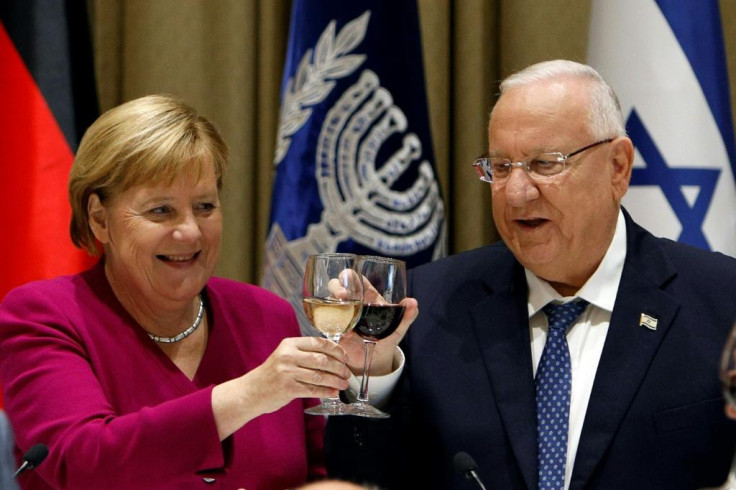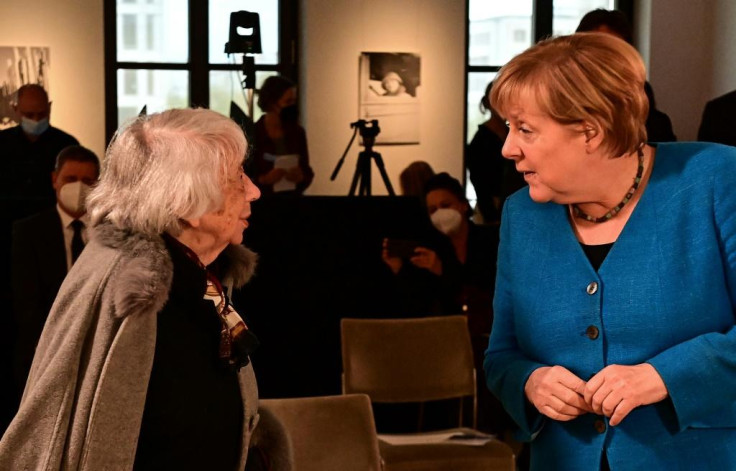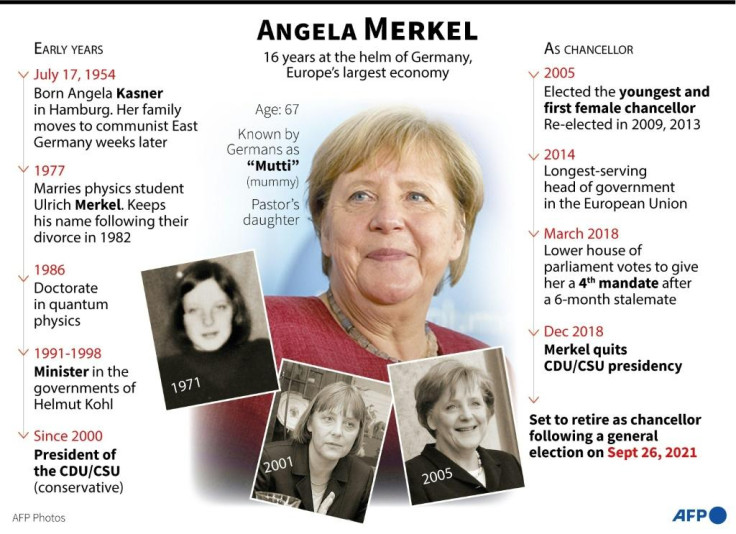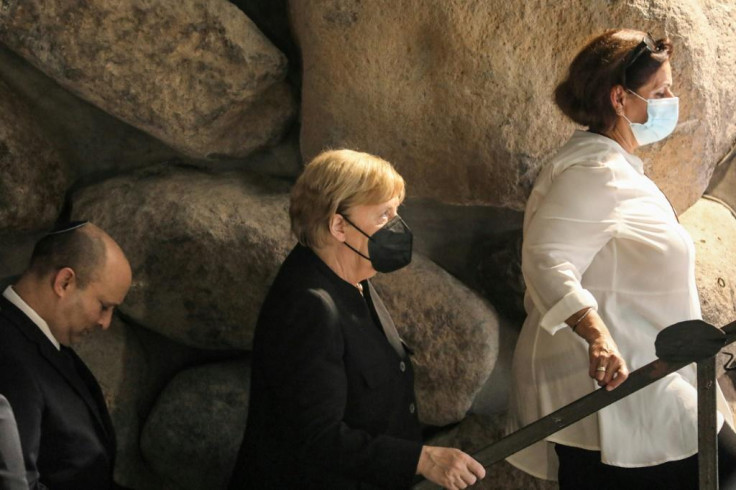Israel security will remain German priority: Merkel on farewell tour
Germany and Israel forged strong diplomatic ties in the decades after World War II, with Berlin committed to the preservation of the Jewish state.
Outgoing Chancellor Angela Merkel said Israel's security will remain a top priority for "every German government", during a farewell visit to the Jewish state Sunday near the end of her 16-year term in office.
Merkel, wearing funereal black, laid a wreath at Jerusalem's Holocaust memorial Yad Vashem, writing in the site's guest book that visiting there "touches me at the core every time anew."

"The crimes against the Jewish people that are documented here are a perpetual reminder of the responsibility we Germans bear, and a warning."
Israeli Prime Minister Naftali Bennett, who hosted Merkel through the day, called her "a true friend of Israel".
The German leader had earlier voiced confidence that whoever followed her as chancellor will feel equally committed to Israel's security.
"Israel's security will always be of central importance and a central topic for every German government," she said.
It was "moving" that Israel had come to trust post-war Germany, but this "trust always has to prove itself," she added.

Bennett credited Merkel with fostering an unprecedented bond between the countries and described her as "Europe's moral compass" due to her support for Israel.
Merkel had initially planned to visit in August but delayed her trip during the chaotic exit of US and allied forces, including Germans, from Afghanistan.

The chancellor was not scheduled to meet Palestinian president Mahmud Abbas.

Under Merkel's leadership, Germany has advocated for a two-state solution to the Israeli-Palestinian conflict but she has faced criticism from activists for not pressing Israel to end its military occupation of Palestinian territory that began in 1967.
"We may differ on whether there should be a two-state solution with the Palestinians," she said, but stressed that both are united in the belief that there must always be "a democratic Jewish state of Israel".
Bennett reaffirmed his opposition to a Palestinian state, asserting that it would "very likely become a terrorist state about seven minutes from my home".

Instead, he said he was focused on improving economic conditions for Palestinians.
Omar Shakir, Israel and Palestine director at Human Rights Watch, criticised Merkel for regarding Israel's 54-year occupation as "temporary".
"Maintaining this fiction has allowed the Merkel government to avoid dealing with the reality of apartheid and persecution of millions of Palestinians," he said in a statement.
Political scientist Peter Lintl at the German Institute for International and Security Affairs said Merkel had at times clashed with former premier Benjamin Netanyahu -- in power from 2009 until June -- over Israeli policy toward Palestinians.
But "she kept it mostly behind closed doors," Lintl told AFP.
The emerging coalition to succeed Merkel, anchored by parties to the left of her Christian Democratic Union, may be "more critical and outspoken, regarding especially the issues in the West Bank," he said.
Germany and Israel forged strong diplomatic ties in the decades after World War II, with Berlin committed to the preservation of the Jewish state.
In a historic address in 2008, Merkel atoned for the Holocaust on behalf of the German people before the Israeli parliament, the Knesset.
Israel's Foreign Minister Yair Lapid, the son of a Holocaust survivor, tweeted Sunday: "Chancellor Merkel, there wasn't one moment in your long tenure when you attempted to evade the memory of the Holocaust."
Ex-premier Netanyahu repeatedly labelled Israel's arch-foe Iran as the greatest threat to the Jewish people since the Holocaust, and Bennett on Sunday described the Islamic republic as an "existential" threat.
But Israel and Germany have diverged over a 2015 Iran nuclear deal that offered Tehran sanctions relief in exchange for curbs on its nuclear programme.
Israel opposes the deal and has criticised efforts by Germany, the United States and other signatories to revive it after former president Donald Trump's withdrawal in 2018.
Speaking in Jerusalem, Merkel stood by Germany's attempts to revive the deal, while stating that "Iran has not given any sign it wants to restart discussions".
Copyright AFP. All rights reserved.
This article is copyrighted by International Business Times, the business news leader





















